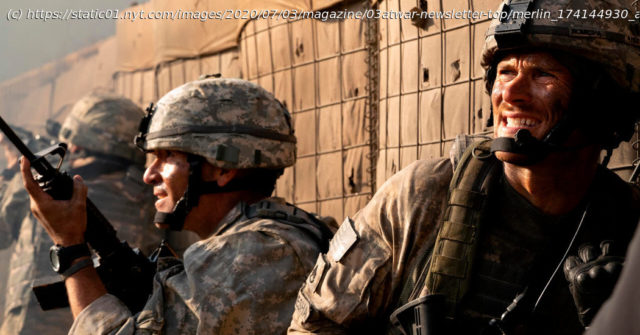I witnessed the making of “The Outpost,” a film about the day my unit fought off 300 Taliban fighters who tried to overrun our camp in Afghanistan.
You’re reading this week’s At War newsletter. Sign up here to get it delivered to your inbox every Friday. Email us at atwar@nytimes.com.
When I learned that my U. S. Army cavalry troop’s war story was being made into a major motion picture, I worried that a Hollywood account of the battle would be inaccurate. My soldiers and I had been sharing stories since Oct.3,2009, when our 53 cavalry scouts fought off more than 300 Taliban fighters bent on overrunning Combat Outpost Keating in Nuristan, Afghanistan. By all quantifiable metrics, my unit won the fight, but at a devastating cost: Eight soldiers died,22 were wounded and our camp burned to the ground.
Over the years, I have learned that sharing the experience allowed many of us to put our emotions into words. That process helped us heal, but a bad rendering of the battle would leave us talking about what the movie got wrong instead of what actually happened. I reached out to the film’s director, Rod Lurie, to vent my concerns. Lurie, a West Point graduate and Army veteran, listened to what I had to say and agreed to let me visit the set. In 2018, I flew on my own dime to Sofia, Bulgaria, to witness the making of the film based on Jake Tapper’s book “The Outpost: An Untold Story of American Valor.” Chris Cordova, an old friend and another veteran of the battle, came with me.
When Cordova and I arrived on set, both of us were astounded. It looked just like our outpost on the day of the battle. As we walked into the replica aid station, I looked at Cordova. Tears were streaming down his face. Nine years earlier, Cordova and his medics toiled away in the aid station to treat the wounded and save the dying.






